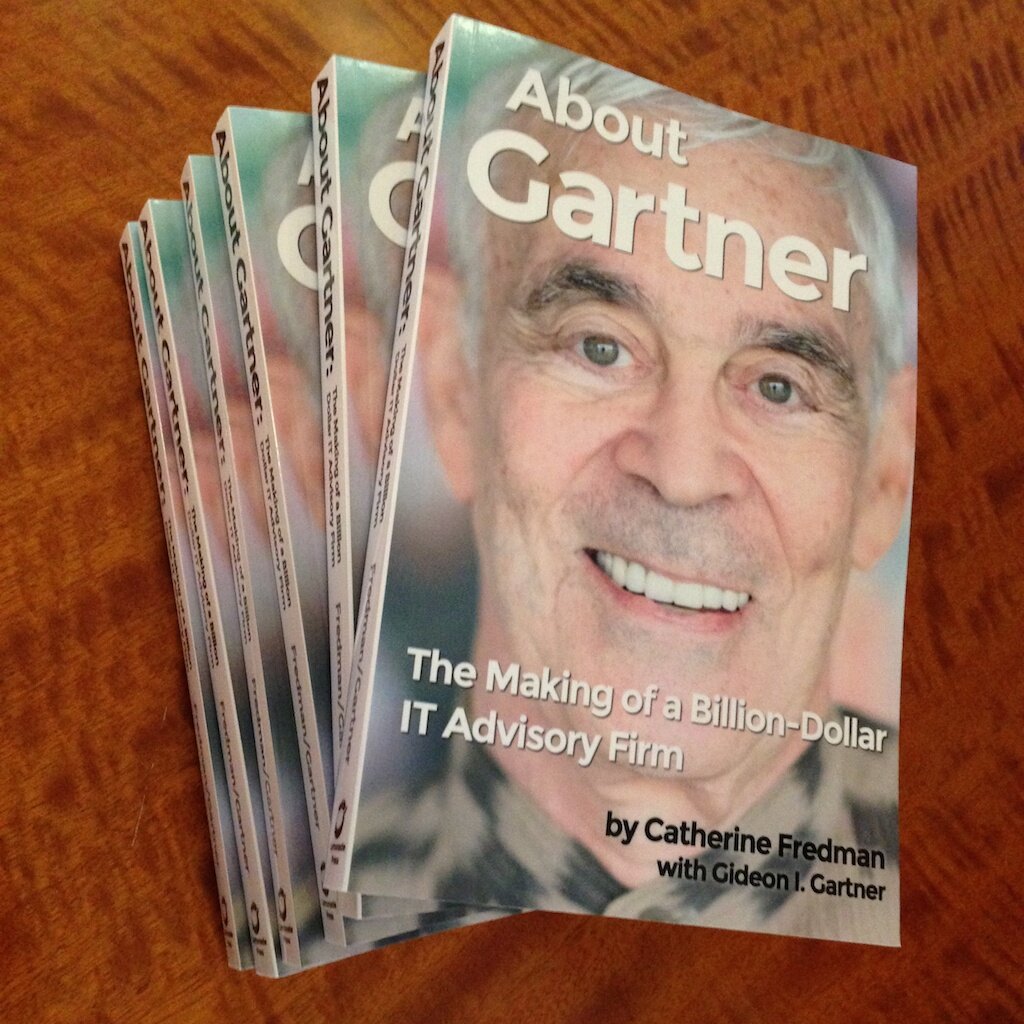From Hutton, to Oppenheimer, to Gartner
Part 1: AFTER HUTTON & OPPENHEIMER, VCs INTERVENE In early 1970 E.F. Hutton hired me as a technology analyst, despite my having little financial background. One of my early successes was a detailed and timely report on Xerox Corp., then a ‘nifty fifty’ firm with steady growth and broad popularity among institutional investors. The report raised concerns that Xerox’s growth might be slowed, and it soon seemed as though every money manager in the country was asking that I visit and elaborate. This early experience put me on...
read moreIsrael, Hamas, and Goldstone, April 2011

It’s about time that the Goldstone/UnitedNations 2009 report of the Israel-Hamas war, is recognized as having been misguided (the lengthy report, sounding as though it was meticulously researched, improperly damned Israel for attacking Gaza, claiming that Israel targeted civilians after years of Hamas rockets targeting and hitting Israeli settlements in Israel’s Negev). As you likely know by now, the Goldstone/U.N. Report has effectively been reversed by the Goldstone apology published April 1 (this past...
read moreGartner: Early “Theory G” & Sales, Part 4

Around 1986 I was still working to formalize and document how Gartner’s culture had evolved since its 1979 founding; seven years old, it continued to maintain (and fine tune) its original research methods, but now embraced sales goals as well. By the following year 1987, we published our methods internally, distributed to our employees as “Theory G”. In hindsight, the name Theory G may sound trite but the idea was to emphasize our continuing need for excellence, that we were in business to serve clients and that...
read moreSharpening Instincts: Review of an IT post

Tony Greenberg wrote a recent blog post (on tonygreenberg.com) which pertains to IT trends; when reading it I wondered if it had any implications for the Advisory industry…. Readers should note that Tony is an ‘outsourcing’ advocate; I’ll summarize his article with my comments in brackets, and then ask a question: We need to sharpen our instincts and stop trusting IT industry myths. I entered the IT business in ‘96. I found massive inefficiencies that I promised I would solve. Here I am 10 years later with the...
read moreGartner: Early Research Process, Part 3 (80/20 Rule)

Gartner’s Research Meetings When VCs Neill Brownstein and Chris Brody convinced me to leave Oppenheimer to found Gartner, they demanded a document that would guarantee their receipt of Gartner research, indefinitely! This led me to realize the importance of terse written research, and we structured our research meetings to enhance our research process, which would then presumably lead to important written output! Over the years not all analysts played the game according to my rules, and several sharpies got away with...
read moreGartner: Early Research Process (RP), Part 2 (including MQs)
In Part 1 of this post I mentioned some of the sources for my research process ideology, resulting in a 1980s ‘research process’ for Gartner which included six major elements: Surveillance, Pattern Recognition, Stalking Horses (including the Magic Quadrant), Search, Document, and Strategic Planning Assumptions (primarily for conferences); while perhaps not followed explicitly, these elements contributed to our research culture: ‘Surveillance’ was simply a qualitative requirement; we expected our analysts to ...
read moreGartner: Early Research Process (RP), Part 1
Gartner’s Original Research process Part 1. I was influenced during Gartner Group’s first year (March 1979-April 1980) by reading two public documents: the book “the Tao Jones Averages: A Guide to Whole-Brained Investing” by Bennet Goodspeed, and an article written by David B. Montgomery and Charles B. Weinberg ‘Toward Strategic Intelligence Systems’ (Journal of Marketing 43, Fall 1979). The first of these promoted the concept of “inferential analysis” which emphasized how evidence to support...
read moreChina: The New Yorker Magazine, Catching Up
For kicks, allow me to begin by suggesting that you link to the following video, which addresses the intelligence of students at our 25th best university in the U.S., UCLA (the students are being questioned on campus about the Middle East): http://www.youtube.com/watch?v=4_2SbkRybBk My first post which addressed the recent Amy Chua book controversy, claimed that what we learn from the book is less about ‘tiger’ parenting than about China’s growing strength via a disciplined parenting culture which inevitably leads to...
read moreMy Bottom-Line Summary on the Chua-China Controversy
The twitter feed shows hundreds (or thousands, I didn’t count) of anti-Chua posts. Amy Chua simply follows the Chinese model of parental discipline but is evidently at the extreme end of the spectrum.The issue is not Chua, but the China culture and system itself; China is the country that challenges our nation’s future more than any other, and the differences in education processes and attitudes are likely critical, especially in the long term! In an important sense, ‘The Future of America’ may be at...
read moreChess, Pattern Recognition, and Gartner Inc.
The New York Times on 1/25/2011 printed a photograph of a gentleman looking down at a chessboard, with an interesting subtitle: Pattern recognition is what sets experts apart from novices. The article points out that “when subjects were shown a chess diagram, the novices looked directly at the pieces to recognize them, while the experts looked on the middle of the boards and took everything in with their peripheral vision”. The idea is absolutely correct: peripheral vision along with the talent to identify patterns...
read more











